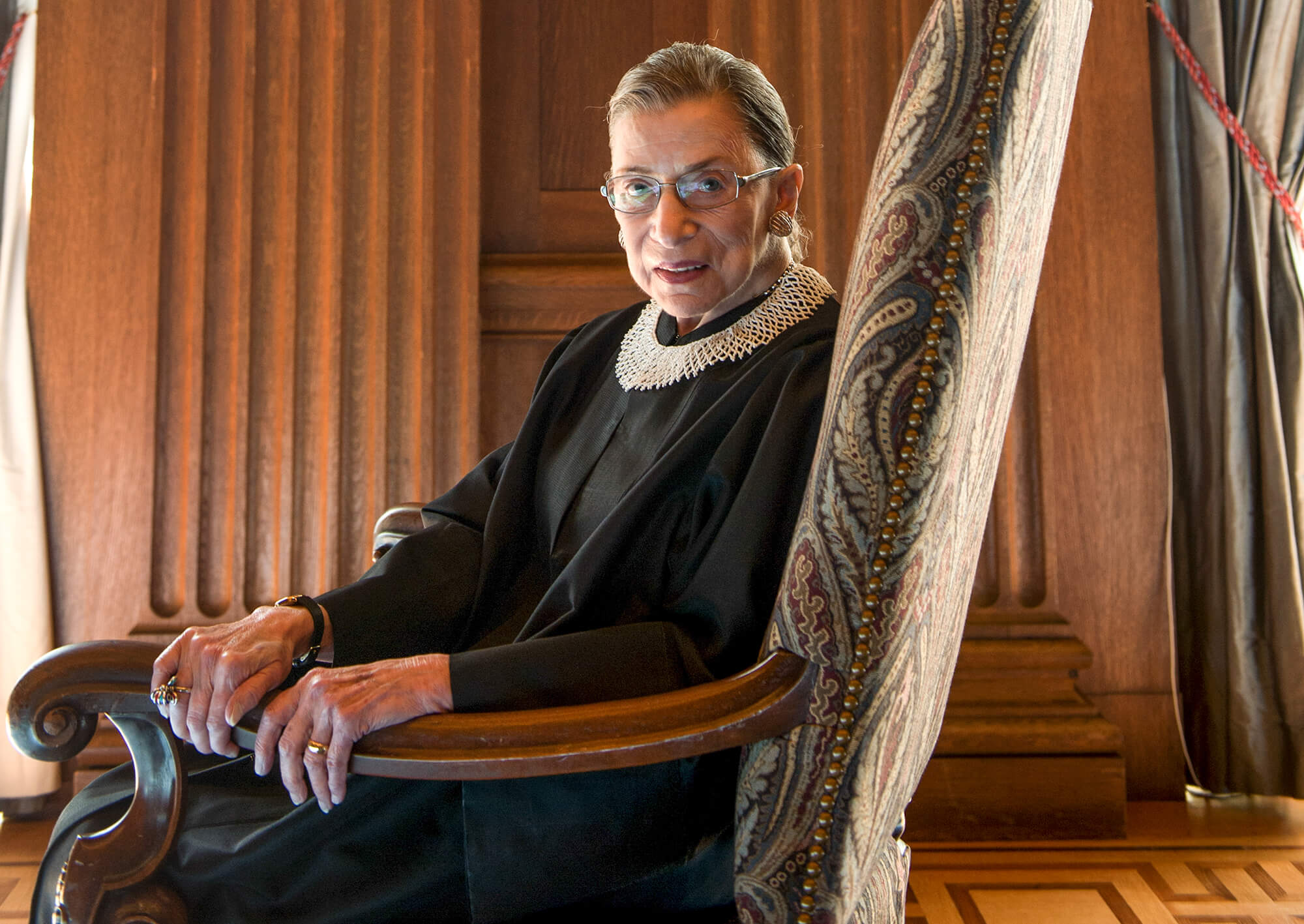Prepared by Cislo & Thomas LLP Attorney Mark D. Nielsen, Ph.D.

Following up on last week’s discussion of Ruth Bader Ginsburg’s involvement in important patent cases, it is worth noting that while the Supreme Court does not take a lot of trademark cases, Justice Ginsburg participated in a number of important trademark decisions during her time on the Court. See e.g., Qualitex Co. v. Jacobson Products (trademark protection for colors); Wal-Mart Stores v. Samara Brothers (protectability of product design trade dress); TrafFix Devices, Inc. v. Marketing Displays, Inc. (protectability of product design trade dress); Dastar Corp. v. Twentieth Century Fox Film Corp. (rejecting attempt to use trademark law to create perpetual copyright rights).
One trademark case in which Justice Ginsburg voted with the majority (7-2), but wrote a separate concurrence is B & B Hardware v. Hargis Industries. The case held that opinions of the Trademark Trial and Appeal Board can have preclusive effect on the same issues raised in trademark litigation. Ginsburg, however, wrote in concurrence that:
The Court rightly recognizes that “for a great many registration decisions issue preclusion obviously will not apply.” Ante, at 1306. That is so because contested registrations are often decided upon “a comparison of the marks in the abstract and apart from their marketplace usage.” 6 J. McCarthy, Trademarks and Unfair Competition § 32:101, p. 32-247 (4th ed. 2014). When the registration proceeding is of that character, “there will be no [preclusion] of the likel[ihood] of confusion issue… in a later infringement suit.” Ibid. On that understanding, I join the Court’s opinion.
In the very interesting case of Matal v. Tam, which pertained to the disparagement clause in 15 U.S.C. § 1052(a), which prohibits the registration of marks that may “disparage… or bring … into contemp[t] or disrepute” any “persons, living or dead, institutions, beliefs, or national symbols.” The Court, including Ginsburg, held that the statute was viewpoint discriminatory and violated the First Amendment where the U.S. Patent and Trademark Office denied registration of the mark THE SLANTS, which was an Asian pop-rock band. Ginsburg also joined a concurrence written by now retired Justice Kennedy (and also joined by Justices Kagan and Sotomayor) in which the last paragraph stated:
A law that can be directed against speech found offensive to some portion of the public can be turned against minority and dissenting views to the detriment of all. The First Amendment does not entrust that power to the government’s benevolence. Instead, our reliance must be on the substantial safeguards of free and open discussion in a democratic society.
This statement, which Ginsburg affirmed by joining the concurrence, illustrates Ginsburg’s commitment to the First Amendment, and reflects a view which, unfortunately, seems to be on the wane in our society.
Photo Credit: https://people.com/politics/voter-registrations-surge-after-ruth-bader-ginsburg-death/



